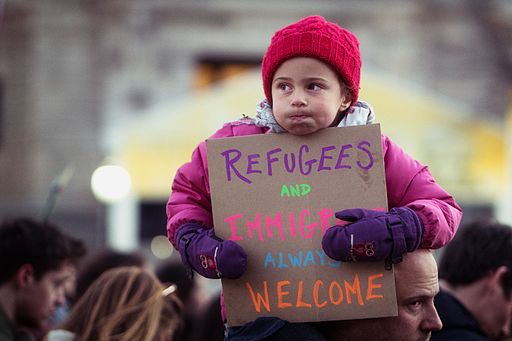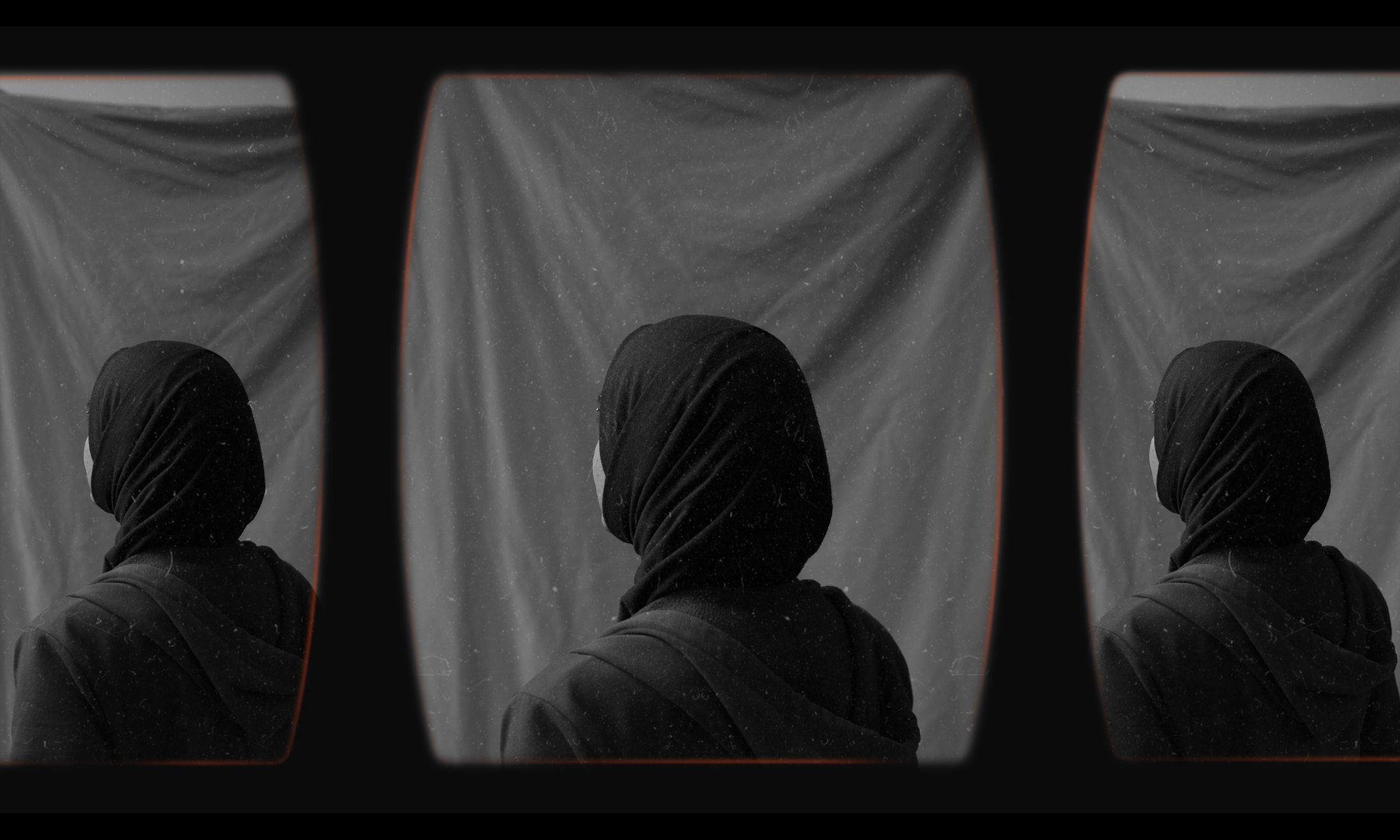
Everyone is talking about Trump’s Muslim Ban, an executive order that has barred people from travelling to the USA. On Friday 27 January, the newly inaugurated President signed an Executive Order on immigration called “Protecting the Nation from Foreign Terrorist Entry into the United States” which banned entry to the USA if you were from a number of Muslim-majority countries across North Africa, the Middle East and Asia. These countries are Iraq, Iran, Libya, Yemen, Somalia, Syria and Sudan but this list might soon expand to include others. This means that Muslims can’t enter the USA for the next 90 days, and people caught in transit have been held at airports across the USA. Rudy Giuliani, former New York City Mayor yesterday articulated that the ban was definitely a ban on Muslims and Trump approached him on how to do it legally.
There’s been some discussion on why other Muslim majority states haven’t been included (with a particular emphasis on Saudi Arabia and Pakistan), but the inclusion of more states in the anti-Muslim ban wouldn’t make sense. Because the ban doesn’t make sense.
On 27 January, Trump said that Afghanistan, Pakistan and Saudi Arabia wouldn’t be subject to the ban. However, he did say, “we’re going to have extreme vetting in all cases. And I mean extreme. And we’re not letting people in if we think there’s even a little chance of a problem”. Donald Trump has long been seen to be “tough” on immigration, after being elected he commented he wanted to deport 2 to 3 million “illegal” citizens. Just last week, he was involved in a Twitter spat trying to force Mexico to pay for a wall on the US-Mexico border.
Pakistan has long been seen as a key ally for the USA in the War on Terror. Relations have become especially close given USA’s repeated use of drone strikes to take out militants, but in reality, civilians and children have been disproportionately killed by these illegal drone strikes in tribal areas. Other countries also being currently drone bombed by the USA are Somalia and Yemen, to name a few. It’s not surprising that the USA doesn’t want to particularly isolate Pakistan. In a bizarre phone call from Trump to PM Nawaz Sharif, the POTUS commented to the PM, “we are ready and willing to play any role that you want me to play to address and find solutions to the outstanding problems…Please convey to the Pakistani people that they are amazing and all Pakistanis I have known are exceptional people.”
In the past, Trump has said he advocates punishment for women who have abortions and followed through as President by signing an Executive Order that withdrew fundings from NGOs that offer abortion services. Trump isn’t afraid to instate the threats he made as a presidential candidate, and why should he? The far-right has been planning a candidate like Trump since 2006, the early days of the Tea Party. None of this is far removed from white racial anxieties: by 2044 the USA won’t be a white dominant country. Trump has proven that working class white communities will vote against their interests repeatedly, (he wants to repeal Obama Care – something Republicans are terrified about) out of fear for being treated like a racial minority in the USA.
A day after the Executive Order was signed, putting the wheels in motion for the ban, the White House hinted it could be extended to Pakistan. White House chief of staff Reince Priebus commented “You can point to other countries that have similar problems like Pakistan and others- perhaps we need to take it further”. He defended the ban which bars nationals from the list of countries above entry into the USA for 90 days. Looks like Pakistanis aren’t so exceptional.
In a strange twist of events, controversial Pakistani politician, former cricket player and chairman of Pakistani political party Pakistan Tehreek-e-Insaf (PTI) Imran Khan said that he “prayed” Donald Trump stopped issuing visas to Pakistan. Apparently, if the USA stops issuing visas to Pakistanis “we will try fixing our own country… if the ban happens, we will have to improve Pakistan and stand on our own feet.”
The largest settlement of Pakistanis outside of Pakistan is in Saudi Arabia, followed by the United Arab Emirates and then the United Kingdom, with the USA fourth on the list. There are over twice as many Pakistanis (or rather, members of the Pakistani diaspora) in the United Kingdom than in the USA. Pakistanis are the sixth largest diasporic group in the world. Imran Khan’s comments doesn’t do anybody any favours. If anything, he’s forgotten the numerous trips he’s made abroad to the USA to fundraise for his own political party. The existence of a Pakistani diaspora isn’t what is preventing Pakistan standing on its “own feet”. Rather, it is corruption, issues relating to and of postcolonialism, ongoing drone strikes from the USA, imperialist wars and a severe inequality of wealth (to name a few of the issues that immediately spring to mind).
On 30 January, Downing Street commented they remained certain that UK citizens travelling to the USA won’t be affected by the ban. In other words, if you’re a British passport holder and also hold a passport for one of the seven countries above, you’ll (apparently) be fine. However, the US Embassy also issued a statement today saying that “Per U.S. Presidential Executive Order signed on January 27, visa issuance to aliens from the countries of Iraq, Iran, Libya, Somalia, Sudan and Yemen has been suspended effective immediately until further notice.” This means a suspension of the issuing of visas, meaning that advice from the Home Office is going against the advice from the US Embassy: the first time this has happened in living memory despite our so-called “special relationship”.
While this contradiction was brief, it was still seen as a public gaffe by the British government. The US Embassy website has now been updated, stating as of 30 January that “Dual nationals of the United Kingdom and one of these countries are exempt from the Executive Order when travelling on a valid United Kingdom passport and US visa. Additionally, those who have indefinite leave to remain in the United Kingdom and hold nationality of one of these countries are eligible to apply for US visas.” It looks messy to not have both state powers on the same page in public on a topic like this; in fact, the website was updated while the debate was held in the House of Commons.
We don’t know what extreme vetting means. We don’t know whether or not the ban will last, or whether or not Afghanistan and Pakistan will be brought into the fold of this. But we do know that as Pakistanis, we have been demarcated as “special”, somehow set apart from these other countries despite the collective influence of US imperialism on all of our homelands as people of colour across the world that unites us. It’s up to us to play this field as strongly as we can for the betterment of all of our peoples across the world, and to perform solidarity with affected groups because no human is illegal. Follow Movement for Justice on fighting borders and deportations at home in the UK, and American Civil Liberties Union for information the emerging situation across the USA.










